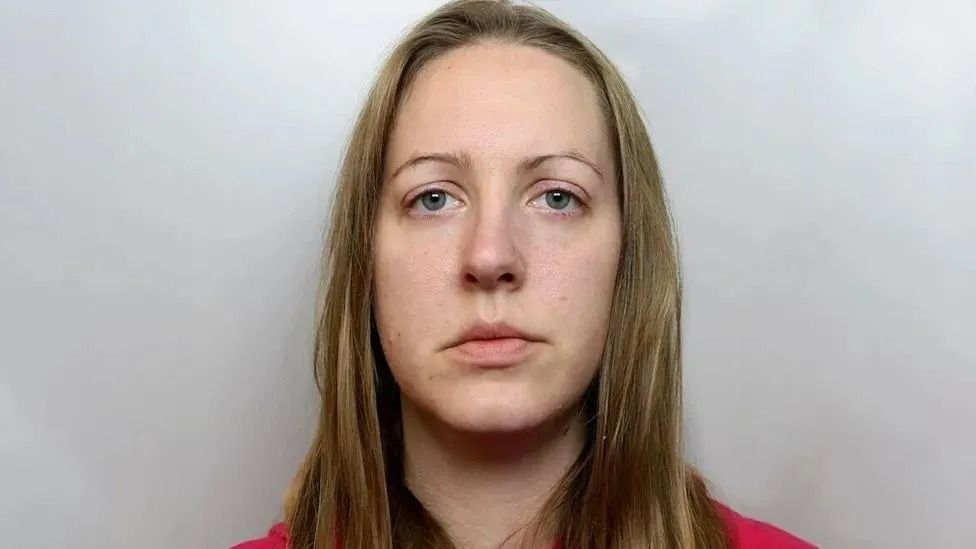Since reporting restrictions were lifted following the trial, and re-trial, of Lucy Letby, concerns, doubts and speculation as to her guilt have emerged.
Letby remains behind bars at HMP Bronzefield, a women’s prison in Surrey, and has had all her applications to appeal her convictions rejected.
Despite this, experts from various fields, lawyers, commentators, journalists and politicians have expressed their doubts over her guilt, and in some cases their disbelief at the weakness of the case against her.
Many others remain convinced of Letby’s guilt but are concerned about the safety of a prosecution that relied heavily on arguments that have since been found to be inaccurate or misleading.
While it is true that those coming forward now to question Letby’s conviction were not present at the trial, many people close to the case (including the expert witness for the defence, who was not actually called to give evidence) have sounded the alarm. Lucy Letby herself maintains her innocence. Her convictions make her one of the most prolific child murderers in history.
We look now at the case so far. Could Letby be the victim of one of the gravest miscarriages of justice in British history? Are those questioning her guilt ill-informed? Or worse, are they weaving conspiracy theories about a harrowing but ultimately closed case?
Creeping concerns
Dr Phil Hammond, who writes the MD column for Private Eye and was one of the first mainstream journalists to dig deeper into the Letby case, recently posted on X about the enormous shift that has taken place over the last few months. While until very recently anyone expressing concerns over the case was dismissed as being a conspiracy theorist, the dial has now turned the opposite way. Those insisting there was nothing to be concerned about during the trial and Letby is irrefutably a child-killer could now be perceived as the more dogmatic.
The idea that the conviction is not safe has emerged from a journalistic unravelling, starting with the publication of an article in the New Yorker in May. At first readers in the UK were not able to access the article without using a VPN, as it was geo-blocked on account of the UK’s reporting restrictions on ongoing cases – ostensibly in place to avoid prejudicing the jury. In this case, a retrial, the jury was already aware of Letby and her convictions. The reporting restrictions therefore seemed unlikely to influence the case.
The New Yorker article meticulously examined the case over the course of 13,000 words. The Conservative MP David Davis spoke in the House of Commons a few days later and called on the Lord Chancellor to lift a court order blocking the article on the grounds that the ban offended ‘open justice’. He has since gone on to take up the mantle of the Letby case in other ways, appearing on Good Morning Britain on 2 September to discuss his concerns.
Journalists pull at loose threads
Following the publication of the New Yorker article, and the lifting of restrictions, there was a flurry of coverage in the UK press – one that has transformed into something of a sustained campaign leading into the forthcoming Thirwall Inquiry into events at the Countess of Chester Hospital
Articles in the Guardian, the Telegraph and the Independent on Sunday, podcasts by the Times, and commentaries by well-known columnists have built up a picture of a potential wrongful conviction.
Reporting on the Justice Gap, including an interview with a leading statistical expert, has also raised doubts about the case.
British-born statistician Richard Gill, emeritus professor of mathematical statistics at the University of Leiden in the Netherlands, spoke to the Justice Gap while the reporting restrictions were still in place, saying: ‘I think that the trial was unfair, the police investigation was unfair and, I also say, I’m certain Lucy Letby is innocent – as certain as you can be about these things.’
Gill campaigned on behalf of a nurse in the Netherlands, Lucia De Berk, who was also convicted of murder on the basis of statistical evidence. Her conviction was eventually overturned and became known as one of the biggest miscarriages of justice in the country’s history.
He told the Justice Gap: ‘I have seen how these cases arise out of nothing. You can completely understand everything on the basis of the innocence hypothesis. In other words, this is what happens when things go wrong. There is a calamity and a scandal in an NHS maternity unit or neonatal unit every year. There is a serial killer nurse in England maybe once in 50 years. The probability that this is just another NHS scandal is enormous. Every single piece of evidence only makes me more certain of that.’
Another academic, John O’Quigley, has criticised the prosecutions use of statistics which appear to show that for every suspicious death that occurred at the Countess of Chester Hospital, Letby was on shift. A table showing collapses and deaths of babies charted against which nurses were on shift appeared damning, as Letby was supposedly the only nurse present for every incident.
He said: ‘According to the prosecution, it is clear evidence; it’s nothing of the sort and any statistician – a first year undergraduate in statistics – could show that’s nonsense. You really don’t need a sophisticated understanding of statistics to see that it is a complete crock.’
Asked if he was convinced of Letby’s innocence he said: ‘I cannot be certain that she’s innocent. I can be certain that she did not get a fair trial.’
Dr Phil Hammond has written a series of articles on the Letby case for Private Eye. With regards to the statistical evidence, he has reported there were ‘at least’ 35 deaths or non-fatal collapses during the period in question that ‘should have been included in the table for it to be considered statistically robust.’
In a piece written in July he asked: ‘Why did babies collapse when Letby was not on duty? She was convicted of seven murders, but there were 10 other deaths that she wasn’t on duty for.’
A recent article in the Guardian pulled at another thread, that of Letby’s handwritten notes which were presented by the prosecution as a confession. It has now been revealed that Letby was advised to write down her feelings by an Occupation Health specialist within the Countess of Chester Hospital. When taken as a cathartic, therapeutic way of processing an extremely traumatic situation, the picture painted is entirely different.
Appealing the convictions
So what now?
It was revealed last week that Letby has instructed a new defence team ahead of her application to the CCRC. Her new barrister, Mark MacDonald KC told the BBC’s File on 4: ‘I knew almost from the start, following this trial, that there is a strong case that she is innocent.’
‘The fact is juries get it wrong. And yes, so do the Court of Appeal, history teaches us that.’
Many who are unsure about Letby’s innocence question the morality or usefulness of commenting on her case in the public eye – often referencing how painful it must be for the parents of the babies who died to see their killer being championed.
This is valid yet betrays a misunderstanding of the UK’s system for dealing with miscarriages of justice. Letby’s requests to appeal her convictions have been rejected. The only option now available to her is to make an application to the Criminal Cases review Commission (CCRC), the beleaguered watchdog established to resolve miscarriages of justice. Miscarriages of justice are rarely uncovered without a sustained media or political campaign.
For the CCRC to review any, or all, of the convictions against Letby would be extremely complex work, likely taking many years. For the body to agree to look into a case there has to be new evidence that was not presented to the jury at the initial trial (you cannot simply argue that the jury got it wrong). The commissioners then refer the case back to the Court of Appeal, which could find that no miscarriage of justice has in fact taken place.
Public Inquiry
In the meantime, the Thirlwall Inquiry into what happened at the Countess of Chester Hospital starts tomorrow, when it will begin hearing oral evidence.
In her opening statement published on the inquiry website the chair, Lady Justice Thirlwall, referred to the case of Beverly Allitt who murdered babies on a hospital ward in Grantham in the 1990s. She said: ‘Everyone was determined that it would not happen again. It has happened again. This is utterly unacceptable.’

Lady Justice Thirlwall
In the last few weeks a group of experts have asked the government to postpone or alter the inquiry over concerns about the way evidence was presented to her trial.
In a letter, 24 neonatal experts said the obvious assumption that the nurse did commit all of the murders for which she has been found guilty may mean ‘alternative, potentially complex causes’ for the deaths were not examined and ‘important lessons’ were missed.
One of the experts Warwick University’s Prof Jane Hutton, an expert in medical data, told the BBC that in her opinion the work behind the statistics presented to the jury ‘appears not to have been done in the way that it should be.’
She said a police statement suggested the statistical work was done ‘with Lucy Letby in mind, which is completely inappropriate.’
The inquiry confirmed in July that it would take on board growing concerns about the failure of the courts to get to grip with statistical evidence in medical murder cases. According to the Royal Statistical Society, the inquiry has accepted its recommendation that the terms of reference ‘include the appropriate uses of statistical evidence in cases of medical murder’.








